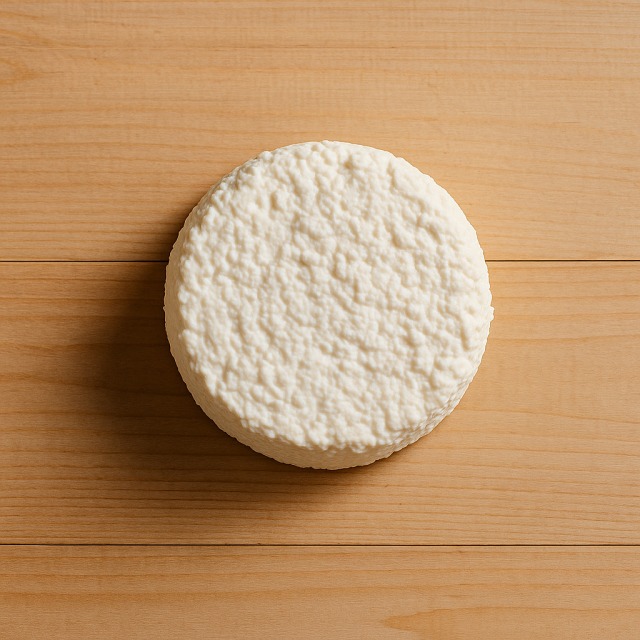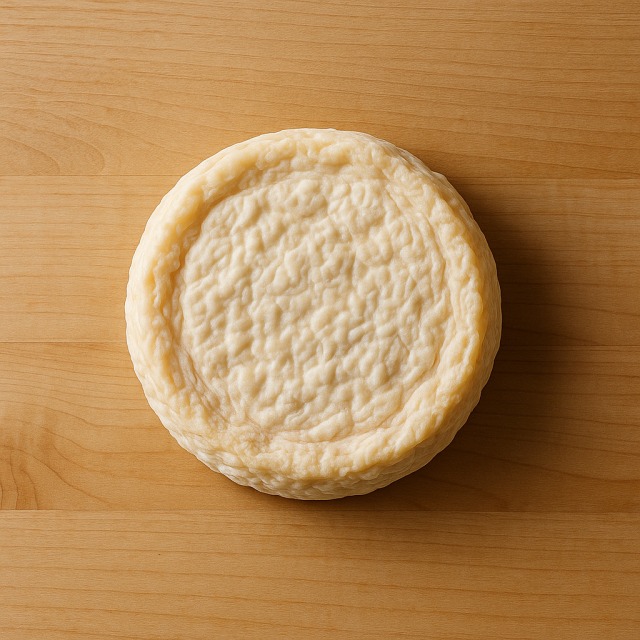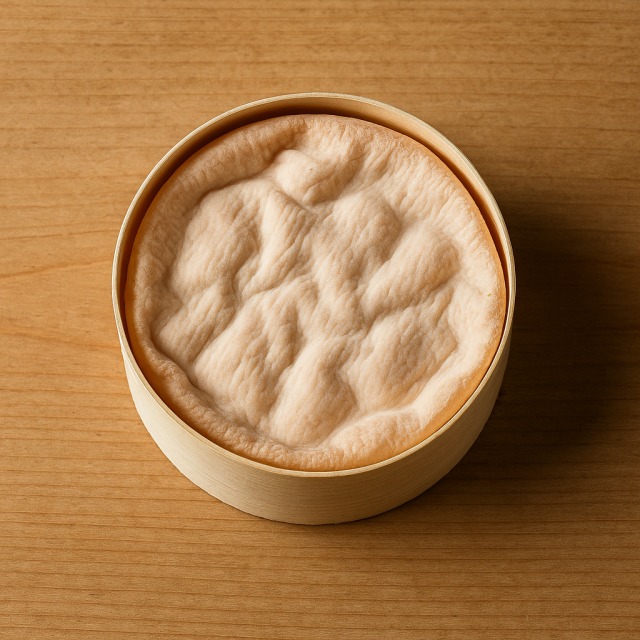Calorie Chart / Cheeses / Whey cheese
How Many Calories Are in Whey cheese?
Calculation of the nutritional value & Recommended Dietary Intake of whey cheese
For g and a calorie requirement of kcal
| Calories 38 kcal | Proteins 1.8 g | Lipids 3.2 g | Carbohydrates 0.6 g |
| 2% | 2% | 5% | 0% |
Health benefits of whey cheese

Whey cheese - 100g
Calories 96 kcal
Proteins 4.5 g
Lipids 8 g
Carbohydrates 1.5 g
With only 96 calories per 100 g, whey cheese is classified as a moderate-calorie dairy option, delivering a creamy texture without the calorie load of aged cheeses that can approach 400 calories. Despite the limited calories, it still supplies around 4.5 g of high-quality proteins rich in the amino acid leucine, valuable for muscle maintenance. It is also a notable source of calcium and phosphorus for bone health, as well as vitamins B2 and B12 that help reduce tiredness. Because it is made from whey, its natural lactose content is lower than in many other fresh cheeses, which can make digestion easier for some consumers.
Research attributes supposed antihypertensive effects to bioactive peptides released during the draining of whey; these benefits remain "supposed" until further clinical confirmation. Historically, shepherds in the Alps consolidated leftover whey into a light cheese to avoid wasting nutrients—an early gesture toward controlling both food waste and calories. Enjoying whey cheese alongside low-calorie foods such as an apple, blanched broccoli, or grilled chicken breast keeps overall meal calories in check while capitalizing on its micronutrient profile.
Tips for incorporating whey cheese into a balanced diet
To build a balanced breakfast around moderate calories, blend whey cheese with a ripe banana, a handful of oat flakes, and a dash of honey. The combination raises protein intake without letting calories spike, making it popular among endurance athletes.
At lunch, replace high-calorie sandwich spreads with a herbed whey cheese cream. Spread it on whole-grain wholemeal bread and top with crisp cucumber ribbons; you will reduce calories while adding water-rich vegetables that promote satiety.
For dinner, stuff steamed spinach leaves or grilled zucchini boats with whey cheese, garlic, and fresh herbs, then bake until golden. This dish delivers comforting texture for a fraction of the calories found in classics like Emmental au gratin. Remember that portion size still matters: a 50 g serving of whey cheese only contributes about 48 calories, leaving room in the calorie budget for a side of brown rice or a fruit dessert without surpassing daily calories.
Frequently Asked Questions
- How many calories are in whey cheese?
- There are 96 kcal per 100 g.
- Is whey cheese a good choice for weight-loss diets?
- Yes. Thanks to its 96 calories per 100 g and satisfying proteins, whey cheese helps create meals that are rich in nutrients yet moderate in calories, making it easier to stay within a reduced-calorie plan.
- How do whey cheese calories compare with ricotta calories?
- Traditional ricotta averages around 150 calories per 100 g, so whey cheese provides roughly 50 calories fewer, a meaningful saving for people tracking daily calories.
- Can I substitute whey cheese for high-fat spreads to cut calories?
- Absolutely. Replacing butter or mayonnaise with whey cheese can trim several hundred calories from sandwiches or wraps while adding extra calcium.
- Does cooking with whey cheese change its calories?
- Heating does not alter the intrinsic calories of whey cheese; what affects total calories is the oil, pasta, or pastry you pair with it.
Similar foods
Information provided by Calorie Menu may contain inaccuracies or errors. It cannot, under any circumstances, substitute medical advice or medication.










